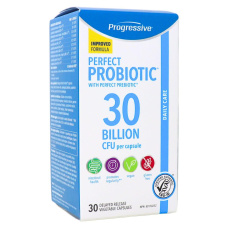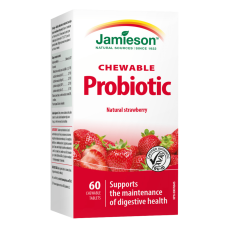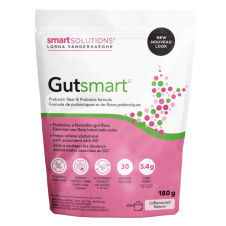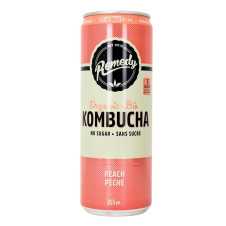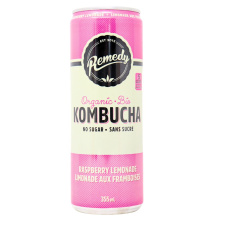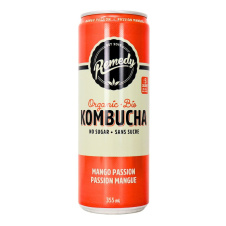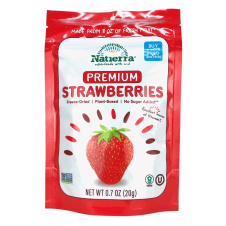Affichage navigation

How to Improve Your Gut Health Naturally
Consider this your Gut Health 101— everything you need to know about the complex ecosystem that is your Gut Microbiome and how good gut and bad gut bacteria can impact your overall state and wellbeing. Well cover everything from how to restore healthy gut flora to foods that can help you improve your gut health.
Did you know good overall health starts in the gut? Not just because we need food and water to survive. It’s a little more complicated than that. And more has something to do with the nearly 2 million bacteria that live within the complex ecosystem that is your gut.
A fun fact you may not have known is you’re actually more gut bacteria than human! It’s true. The number of bacteria in your gut is about 10 times more than the number of cells it takes to make up one human person. There’s good gut bacteria and there’s bad gut bacteria, and the ratio of the two determine how healthy your gut microbiome is, and in turn, how healthy you are.
So what exactly does good gut health mean? And what is the importance of gut health in relation to our overall health? We break down the science for you,read along!
Disclaimer: This article was created for informational purposes only. Please consult with your health care team prior to making any changes to your diet or lifestyle.
What is Good Gut Health & Why Is Good Gut Health So Important
The Gut Microbiome refers to the bacteria that live in your gut. There are about 300-500 different types of microorganisms living along the lining of your digestive tract; many of which are crucial and necessary for your health. These are good gut bacteria. Good gut health refers to having a wide variety of these good gut bacteria in your gut, as well as the overall state of your digestive system.
Think of your gut microbiome as a community all working together. The health of your gut microbiome determines your overall health, and affects how your body works. A good gut environment (also known as the gastrointestinal flora) helps our body to make the necessary vitamins we need, to fight against infection, manage our metabolism, regulate our bowel movements, maintain a healthy weight, and keep our immune system strong. Good gut health has been linked to contributing to heart health, brain health, improving mood and sleep, and can possibly help to prevent certain cancers and autoimmune diseases.
A healthy gut works the way it is intended and has more of the good gut bacteria than the bad kind. It is when we have an imbalance of good and bad gut bacteria, with more of the bad kind of bacteria than the good, that problems with our digestive tract arise; this is what it means to have an unhealthy gut.
Signs of an Unhealthy Gut
Physical symptoms you may notice that indicate there is an imbalance in gut bacteria include: heartburn, gas, bloating, constipation, changes to your stool, rectal bleeding, and inflammation of the digestive tract. However, since your gut health regulates and controls many other aspects of our health, there are also symptoms that we may not necessarily relate directly to our gut, but can be a result of bad gut health. They include: brain fog and trouble focusing, joint pain, headaches, changes in mood or depression, skin rashes, anemia, weight loss or gain, high cholesterol, high blood sugar levels, and the list continues. So if you haven’t been feeling 100% lately, but can’t quite pinpoint what’s the root cause, it may have something to do with your gut.
Can an Unhealthy Gut Cause Other Health Conditions?
Prolonged effects of a gut imbalance can lead to long term health conditions. An unhealthy gut has been linked to stress which can lead to depression, anxiety, vitamin deficiencies, and obesity, as well as a variety of autoimmune diseases, including arthritis, diabetes, crohn's disease, ulcerative colitis, psoriasis, eczema, celiac disease, hypothyroidism or hyperthyroidism, and even potentially cancer.
How to Improve Your Gut Health Naturally
Luckily, there are many things we can do to get our gut back into tip-top shape! The first and most important factor is making gut-friendly food choices.
Foods to Improve Your Gut health
There are foods you can eat (dubbed: Gut Health Foods) that can help you to do everything from increase the amount of good bacteria in your gut to minimize the side effects like constipation and inflammation. Here’s a list of Gut Friendly Foods you’ll want to add to your diet to eat your way to a healthier gut!
Watermelon: A good reason to enjoy watermelon all year round, not just in the summer months! Watermelon is a fiber-rich fruit that can help to reduce bloating and inflammation in the gut. The high water content also helps with proper digestion and can help relieve constipation. Sip on Poppi Prebiotic Soda made from real watermelon juice.
Papaya: Another delicious, tropical fruit with powerful gut healing powers, papaya can help to relieve constipation and heartburn. There are also important enzymes in papaya, which helps aid with proper digestion as well. Enjoy as a snack or with breakfast!
Kombucha: Packed with organic acids, enzymes and natural probiotics that can all help improve your gut and maintain a good amount of good bacteria in the gut, Kombucha is the fermented tea drink that can do it all.
Kefir: A more powerful probiotic than yogurt, kefir is high in nutrients and can assist in the growth of healthy gut bacteria. Enjoy kefir with some fresh berries or add to your protein smoothie!
Bone Broth: Sip your way to a healthy gut! Bone broth can help you maintain the correct levels of acidity in your stomach. Bone broth is also high in the amino acids glycine and proline, making it a powerful anti-inflammatory. Sip on a warm cup of bone broth midday as a snack, or incorporate in your meals.
Fiber: Eating fiber-rich foods can have abtreat impact on your gut! This is because fiber feeds the good gut bacteria, optimizing their function and allowing them to thrive. Foods that are rich in fiber include fruits, vegetables and beans such as strawberries, broccoli, artichokes, lentils, apples, and brussel sprouts.
Sauerkraut: Adding some fermented, pickled cabbage to your diet can aid in the growth of healthy bacteria and assist in proper digestion and function of the digestive system. Sauerkraut tastes great on a variety of your favorite foods! Use as a condiment or add to your tuna or egg salad, as a topping on tacos, or enjoy on avocado toast.
Whole Grains: Rich in healthy fiber, consuming whole grains helps you to maintain a good balance of good and bad gut bacteria that you need in order to keep your gut healthy. Start your morning off with a hearty bowl of gluten-free oats, topped with chia seeds, and flax seeds.
Chicory Root: Chicory root has quite a few benefits under its belt! Not only does it make for an AIP-compliant cup of coffee, it helps to promote the production of mucus in th gut lining, increase good gut bacteria, relieve the symptoms of leaky gut syndrome and help with constipation. Enjoy delicious energy bars made with chicory root fibre or pair your meal with a can of sparkling prebiotic soda made with chicory root extract.
Coconut Oil: Coconut oil helps to improve your body's ability to absorb nutrients. It also has anti-inflammatory properties and has less of an effect on the digestive tract in comparison to other oils. Use it for all of your cooking and baking needs; it adds delicious flavor to stir-frys, roasted vegetables, and even cookies!
Eating the right types of food can be an important factor in the overall state of your digestive tract. Being mindful and incorporating more gut-friendly foods can help to ease the unpleasant symptoms.
Worst Foods for Gut Health
Just like in every story, there’s always a villain. When it comes to an unhealthy gut, there’s quite a few culprits. Here’s the list of bad guys you’re going to want to limit or avoid all together, especially if you’re dealing with the unpleasant side effects of an unhealthy gut like constipation or inflammation:
Foods That Are Bad for Your Gut:
Animal Protein: Animal protein covers a variety of different types of food, from red meat to eggs to dairy products. Consuming animal proteins in large amounts can have a negative impact on your gut microbiome. This is because animal proteins encourage the growth of certain bacteria strains in your gut that can have a negative effect on your overall health.
Gluten: Gluten can be found in a variety of foods and cultural dishes, which means that you may be consuming it in large amounts. Gluten has been linked to causing stomach pain, bloating and lead to inflammation and discomfort. Luckily, there are a ton of gluten-free selections available from bread to cookies to crackers to pasta and more.
Nightshades: A variety of vegetables, including tomatoes, potatoes, bell peppers and eggplant, which can contribute to inflammation in the intestines as well as leaky gut syndrome. Choosing a nightshade-free pasta sauce or a AIP compliant ketchup made from gut-friendly ingredients are great alternatives!
Sugar: This does not refer to natural sugars which occur in fruits and other foods and can be consumed in a moderate amount. Sugars, such as processed or refined sugars, have been linked to constipation and can have a negative effect on the way your gut operates and functions. Being mindful of the amount of sugar you consume and only selecting sugar from natural sources, such as fruit or natural sweeteners helps.
Soy: The high levels of processing that go into soy-based products can have a negative impact on your gut and affect the number of strains of bacteria in your gut that are required in order to keep everything regulated and balanced. Reading the label on any processed foods you eat, to avoid so, or opting for whole, unprocessed foods helps to reduce the amount of soy you consume on a regular basis – that you may not be aware of. For the best soy sauce replacement, try coconut aminos!
Tap Water: While it may be deemed safe for drinking, tap water has a bad reputation and with good reason! If you have to wonder, “Can I drink tap water?”, it’s probably best to avoid it all together. This is because tap water is full of chemicals, which can alter your microbiome and possibly lead to colon cancer.
Processed and Fried Foods: With their long list of side effects it's no wonder that fried foods and processed foods have a bad track record. Leading to everything from constipation to diarrhea to bloating, these foods are best to be avoided or consumed in smaller quantities. Choosing whole foods or minimally processed foods helps, such as fruits, nuts, seeds, beans, and grains in the closest to their natural form.
Alcohol: It’s no surprise, but alcohol and your gut aren't BFFs. Alcohol, even in small doses, is considered toxic to your stomach lining and can cause indigestion as well. Opt for an alcohol-free spirit or make a sugar-free mocktail, to enjoy a classic drink without the alcohol.
What Else Can You Do to Heal Your Gut?
Have no fear, changing your diet, while it's a huge contributor, isn’t the only way that you can fix an imbalance in your gut! Here are some other things you can do to improve your gut.
Can Stress Cause Gastrointestinal Problems?
Your gut is often referred to as your second brain. This is because your gut is controlled by your central nervous system. Stress can cause your body to go into “fight or flight mode” which can increase stomach acid, cause spasms in your esophagus or cause an imbalance in gut bacteria. Reducing and lowering your stress levels can help to minimize your cortisol levels and in term reduce gut-related symptoms to stress.
How Does Sleep Affect Your Gut
Sleeping beauty was doing something right! Getting a good night’s rest can have a great impact on your overall health and mood and in turn, greatly affect the health of your gut as well. Ensuring you’re consistently getting a good quality night's rest can be a contributing factor in good gut health.
How Does Dehydration Affect Digestion?
Your good ol’ friend constipation could be a sign that you’re dehydrated! Water helps to move food through the digestive tract and keeps your intestines clean by eliminating toxins and preventing the growth of parasites and bad bacteria. Drink around 3 liters of water daily to maintain a healthy digestive tract. Another great way to help you stay hydrated is by sipping on a tasty probiotic soda—Cove offers delicious flavors if you’re finding it hard to meet the 3 liters of water a day quota!
Are There Any Supplements I Can Take to Improve Gut Health?
Yes, say hello to your new BFFs! Probiotic and Prebiotic Supplements are the best products for gut health and can help you to kickstart your gut into a healthy gear! With a variety of options available from brands like Progressive, Jamieson, Smart Solutions, and more, you can choose the right prebiotic and probiotic supplements for you! Incorporating gut-friendly supplements into your daily routine can help your gut microbiome to flourish.
Final Thoughts
Gut health is the foundation needed for good overall health. When our gut isn’t working the way that it is intended to we’re not able to function at our best and in turn, various health conditions may arise. Honing in and focusing on your center can help you to get your gut back into tip-top shape. Knowing what foods to eat for good gut health, what foods are bad for your gut, and incorporating some helpful tips for a healthy gut are all things that you can do to have a gut that is back to being its healthy self!








